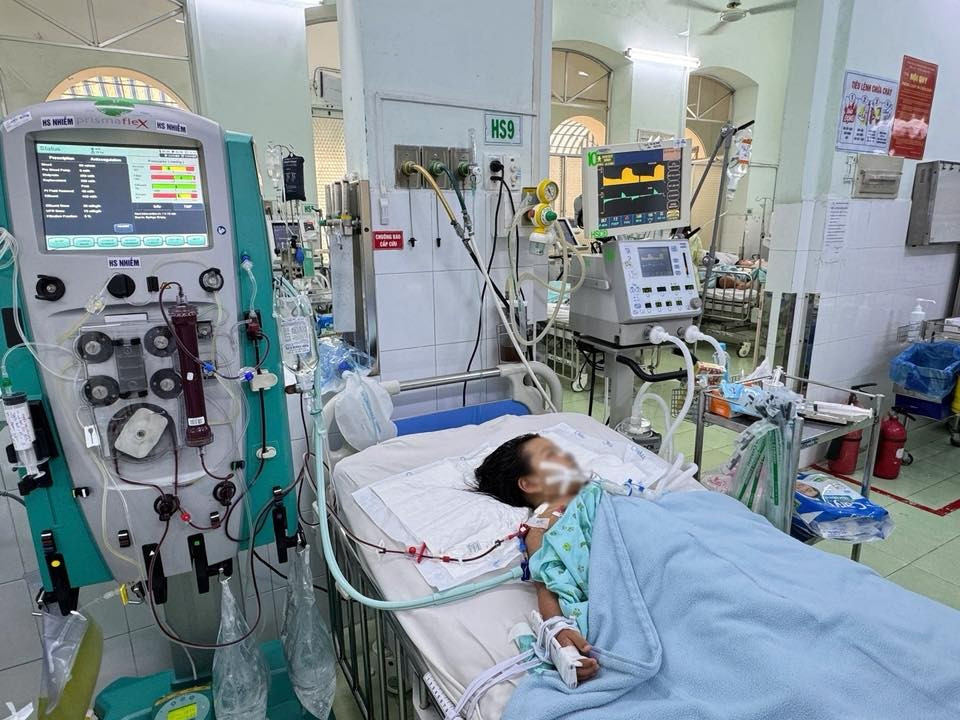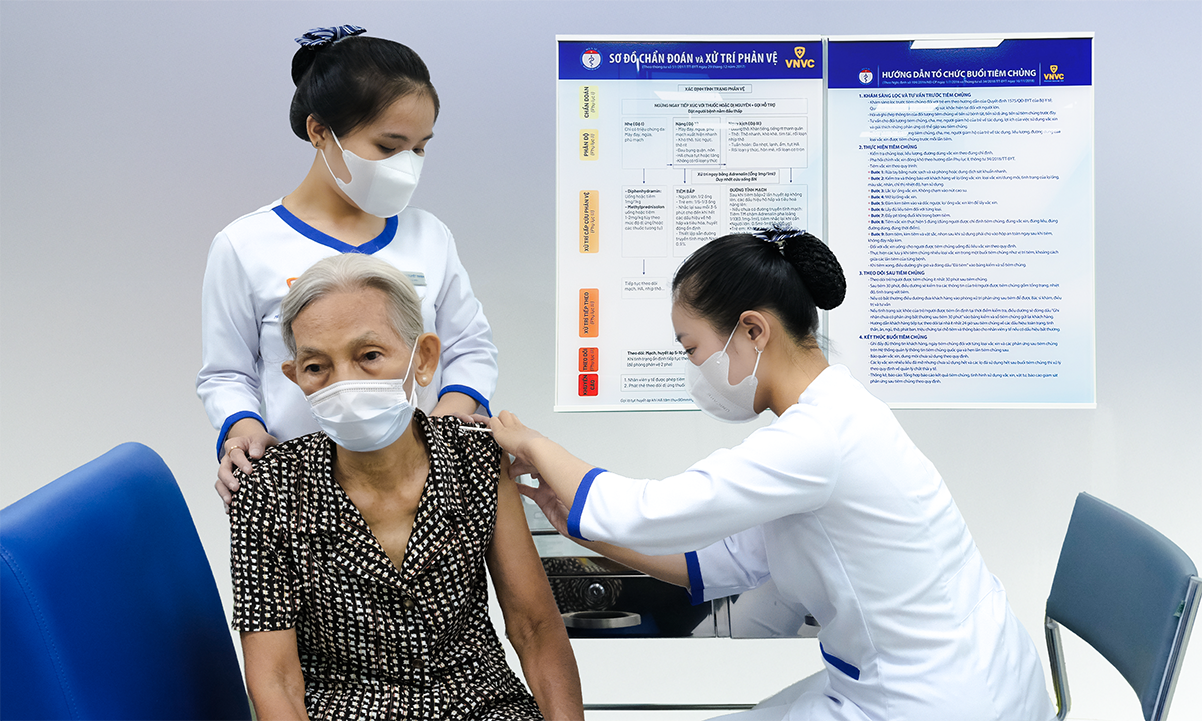With Vietnam in the midst of its peak dengue season, recording over 32,000 cases and 5 deaths, Dr. Bach Thi Chinh, Medical Director of VNVC Vaccination System, emphasizes the importance of understanding which groups are most vulnerable to severe dengue fever. Many hospitalized cases present late with complications like shock, respiratory failure, and coagulopathy, making treatment more challenging. Vulnerable groups include:
Children under 5: Early dengue symptoms in young children, such as high fever, irritability, and vomiting, can be easily mistaken for other common illnesses like roseola, influenza, or hand, foot, and mouth disease. Young children may also struggle to articulate symptoms like headaches and muscle aches, making early diagnosis difficult.
 |
Children under 5 are at high risk of severe dengue fever complications. Photo: Children's Hospital 2 |
Children under 5 are at high risk of severe dengue fever complications. Photo: Children's Hospital 2
Their underdeveloped immune systems make them more susceptible to severe dengue. The Dengue virus can cause blood thickening and dengue shock more rapidly in children than in adults. Without prompt treatment, this can lead to multiple organ failure, severe bleeding, and even death. Other potential complications include liver and kidney failure, encephalitis, myocarditis, and pleural effusion. In late June, Children's Hospital 2 admitted a 4-year-old with critical dengue experiencing respiratory failure, gastrointestinal bleeding, liver enzyme levels 30 times higher than normal, cardiac enzyme levels 200 times higher than normal, severe coagulopathy, and developing kidney failure.
Pregnant women: Dengue poses a double threat to both the mother and the fetus. During pregnancy, a woman’s immune system is naturally suppressed, hormonal changes occur, and hemodynamics are altered. This makes pregnant women more vulnerable to plasma leakage and coagulopathy if they contract dengue. Treatment is also more complicated due to limitations on medication use, especially in severe cases.
Dengue fever increases the risk of uncontrollable bleeding in pregnant women, especially during labor, which can lead to postpartum hemorrhage, pre-eclampsia, and other dangerous obstetric complications. Infection during the first trimester increases the risk of birth defects, premature birth, low birth weight, and fetal distress. Infection in the later stages, especially close to delivery, can result in vertical transmission of the virus to the newborn, leading to potentially fatal dengue in the infant.
Individuals with underlying health conditions: People with conditions like asthma, heart disease, high blood pressure, obesity, kidney failure, chronic obstructive pulmonary disease (COPD), diabetes, and HIV have weakened immune systems. Their heart, liver, and kidneys are less efficient, making it harder to combat the virus. Managing both dengue and the underlying condition simultaneously presents additional challenges.
For instance, in obese individuals, doctors face difficulties in calculating fluid replacement due to fluid loss. The respiratory system and blood vessels of obese individuals are also weaker, increasing their risk of respiratory failure and plasma leakage leading to severe dengue shock. In individuals with impaired kidney function or kidney transplants who require immunosuppressants, the virus can cause severe organ damage.
The elderly: Scientific evidence indicates that older adults face a higher risk of severe complications and death from dengue, and experience longer hospital stays compared to younger patients. Common complications include acute kidney injury, severe hepatitis, sepsis, pneumonia, and acute respiratory failure.
Dengue symptoms like fever, muscle aches, fatigue, lethargy, and loss of appetite can be easily overlooked or mistaken for age-related decline. Consequently, older adults often present late to the hospital, when they have already entered the shock phase.
 |
Elderly individuals receiving vaccinations at VNVC Vaccination System. Photo: Moc Thao |
Elderly individuals receiving vaccinations at VNVC Vaccination System. Photo: Moc Thao
Dengue fever prevention: According to the Ministry of Health, dengue fever often progresses rapidly from mild to severe and can be fatal if not treated promptly. Despite global prevention efforts, dengue cases continue to rise annually.
Vietnam's dengue control strategy focuses on mosquito control. Every household should dedicate at least 10 minutes per week to checking for and eliminating mosquito breeding sites in water containers. Water storage containers should be cleaned, covered, and sealed to prevent mosquito breeding. Adding fish to ornamental ponds can help control larvae, and flower vases should have their water changed regularly.
Individuals should use mosquito nets day and night, wear long clothing, use mosquito repellent, and consider mosquito lamps or electric rackets. Anyone with a fever lasting two days or more should seek immediate medical attention for diagnosis. During treatment, patients and their families should monitor for signs of fatigue, nosebleeds, bleeding gums, cold hands and feet, and low blood pressure, and seek immediate hospitalization if these occur.
Dengue fever is now preventable through vaccination. The dengue vaccine protects against all four serotypes of the virus (Den-1, Den-2, Den-3, and Den-4), with an efficacy of over 80% and a reduction in hospitalization risk of over 90%. The vaccine is recommended for children aged 4 and above and adults, administered in two doses three months apart.
Dr. Chinh clarifies that even individuals who have previously had dengue should still get vaccinated. Vaccination helps prevent re-infection with different strains of the virus, thereby reducing the risk of severe illness. Women are advised to get vaccinated before pregnancy, ideally three months or at least one month prior.
Binh Nguyen












